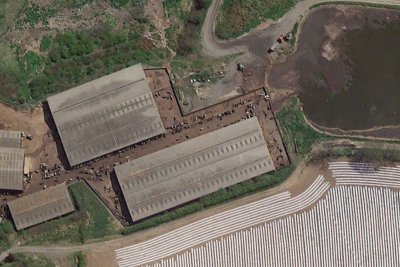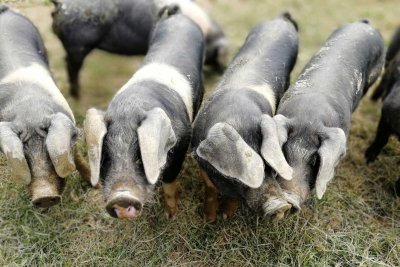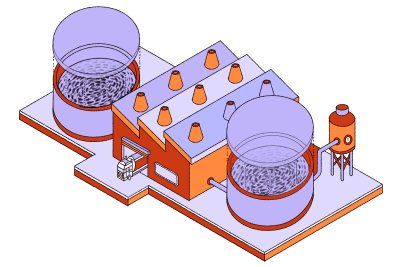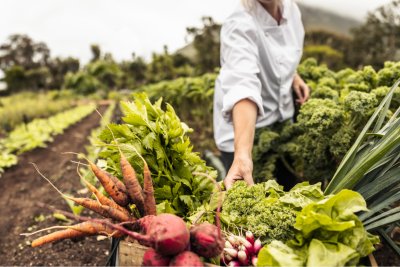 Harvesting organic vegetables in an agricultural field. Copyright: jacoblund | Istock
Harvesting organic vegetables in an agricultural field. Copyright: jacoblund | Istock
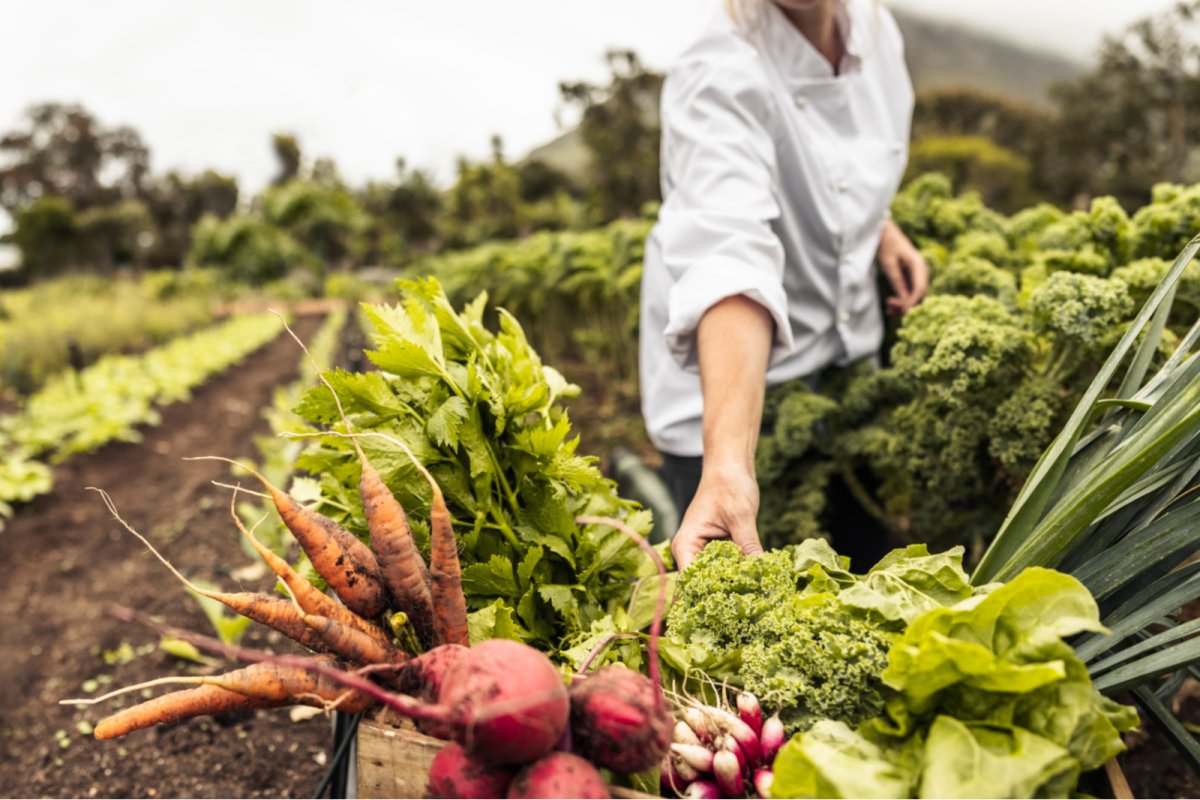
Sustain welcomes EAT-Lancet report: 'Time to back our farmers and make eating better the easy choice'
Sustain welcomes latest EAT-Lancet report, which sets out an updated global blueprint for diets that are both healthy and sustainable. The publication of this second report confirms the overwhelming scientific consensus for a needed change to diets.
Sustain welcomes the report’s recommendations which include increasing consumption of vegetables and pulses, reducing the consumption of meat, and addressing unequal access to good diets.
Following these recommendations could save up to 15 million premature deaths each year and should be an easy choice for government. 66% of people say they are open to the idea of reducing meat consumption and 78% people want to see healthy meals in schools and hospitals.
However people find it harder to buy healthy food in shops, and farmers who grow it do not get enough support. Action is needed from the top to make eating healthy food the easy choice for everyone. Examples of this kind of government intervention in Denmark has boosted farmers and helped more plant-based foods be part of everyday life.
Ruth Westcott, climate lead at Sustain, the alliance for better food and farming said:
“The government needs to make eating heathy food the easy choice that fits in to people's lives. We know people want to eat well but the people who actually grow our food are barely covering their costs while the big supermarkets rack up huge profits. The good news is that we can make better diets the easy choice, starting with the food in schools and hospitals. We've seen it work in other countries, it's time now for the UK to step up.”
Josiah Meldrum, Co-Founder, Hodmedod ltd, a UK farming collaborative growing innovative pulses and legumes said:
“Any shift to healthier and greener diets represents a huge opportunity for farmers. We should be growing a much greater variety of vegetables and pulses here in the UK, for our health and for the ecosystems we rely on. But it is very hard for farmers to make a decent living and we need proper investment from the government to make it happen”
Recommendations
The report is clear that rather than telling people what to eat, Governments must bring in policies to make good food the norm. It sets out eight priority solutions, set of recommendations, including:
- Healthy and sustainable public sector food: Aligning food procurement policies with the Planetary Health Diet and serving traditional food is identified as a cost effective investment. Cities in the C40 initiative have pledged to do this, but face barriers from national procurement standards.
- Restricting the advertising and marketing of unhealthy foods, and mandating clear front-of-pack warning labels on unhealthy foods high in sugar, salt, and fat, similar to policies in Chile and Mexico.
- A combination of duties on unhealthy foods and subsidies for nutritious foods to make healthier options more affordable, as well as policies to increase the purchasing power of low-income households
- Transitioning agricultural payments from emissions-intensive animal products towards under-consumed healthy foods like fruits, vegetables, and legumes and sustainable farming practices
- Strong regulations to prevent the loss of ecosystems, such as forests and grasslands, and prevent deforestation in supply chains
- Investment in community and indigenous management of ecosystems, and support for producers, especially women to have governance over resources
- Reducing food waste through fiscal and regulatory incentives
- Justice and equitability through improving pay and workers rights, supporting collective bargaining and tackling exploitation.
- Improved governance and representation, with legislation to limit corporate market concentration, protecting policymaking from undue influence, and increasing the representation of women and marginalised groups in positions of influence and policy forums.
Why these recommendations matter for the UK
1. For UK farmers, growing more nutritious plant-based foods is an opportunity for economic growth, but this requires investment from government
-
UK is significantly below self-sufficiency for fruit and vegetables. We import about 45% of vegetables we consume.
-
Increasing meat production was identified as a risk to food security in the UK’s latest food security report, with around 50% of UK cereal crops grown for animals rather than humans.
-
Investing in horticulture to increase UK fruit and veg production to meet healthy eating guidelines would add an estimated £2.3 billion to the economy and support up to over 20,000 new jobs.
2. Unequal access to good food is causing a health crisis:
-
Less than a fifth of UK adults and just under a third of children currently get their 5 a day.
-
For the poorest 20% of households, achieving a healthy diet (e.g. as per the Eatwell Guide) would cost about 45% of their disposable income.
-
Healthier foods are more than twice as expensive per calorie as less healthy options; over the past two years, the price of healthier items has risen at roughly double the rate of unhealthy ones.
-
In major UK cities, unhealthy junk food advertisements appeared six times more frequently in the most deprived areas compared to the least deprived.
-
UK people eat on average 89 grams of meat per day
-
High intakes of red and processed meat are linked to greater risks of cardiovascular disease, type 2 diabetes, and other conditions.
-
Even people eating meat around the UK’s current guideline level (~70-90g of red & processed meat daily) have significantly higher health risks than those eating far less. For example, eating ~76g/day red & processed meat is associated with about a 20% higher risk of bowel cancer compared to eating ~21g/day.
-
The World Health Organization (WHO) classifies processed meat as a Group 1 carcinogen (i.e. known to cause cancer), and red meat as probably carcinogenic.
Despite industry efforts to undermine scientific consensus, there is broad public support for eating good diets
-
Public willingness to reduce meat consumption is growing, and 66% of people say they are open to the idea of reducing meat consumption
-
78% people want to see healthy meals in schools and hospitals
-
In 2025, DeSmog and The Guardian revealed that a PR agency - representing a livestock industry lobby group - orchestrated a campaign to undermine EAT-Lancet in 2019.
-
In 2024, an 18 month investigation into 22 companies across four continents described the meat and dairy industry as mirroring the tactics of the tobacco industry by attempting to derail, distract and delay climate action, including via misinformation campaigns.
-
In 2023, The Guardian reported that agriculture lobby groups were said to have pressured scientists and officials working on other landmark reports, such as the UN Food and Agriculture Organisation’s (FAO) research about livestock methane emissions and farming’s role in climate change
Sustain is urging the government to:
-
Produce a cross-departmental Food Strategy with legally-binding targets for improving people’s access to good food and address the UK’s production gap in healthy and sustainable foods.
-
All foods bought with taxpayers’ money (for schools, hospitals, the military and prisons) should reflect a healthy and sustainable diet and directly support high-standard UK farmers.
-
An investment strategy for home-grown healthy proteins, including vegetables, pulses and legumes, inspired by the Danish plant-based investment strategy (see below).
-
Universal healthy and sustainable free school meals — so every child has a fair start, alongside other targeted policies to reduce diet related health gaps.
Denmark’s Plant-Based Growth Strategy:
-
The Danish government has committed 1.25 billion Danish kroner (≈ €168 million) to advance plant-based foods via a national agreement for food and agriculture.
-
There is a fund to support product development and promotion of plant-based foods, including a plant-based Eco-scheme to pay bonuses to farmers who grow protein crops for human consumption.
-
Denmark has produced the world’s first national action plan for plant-based foods, covering research, training, supply chain support, export growth, and inclusion in public sector settings.
The strategy demonstrates that with public investment, governments can signal a clear direction for agriculture and support farmers to boost opportunities for nutritious, plant-based produce.
Sustain: Sustain The alliance for better food and farming advocates food and agriculture policies and practices that enhance the health and welfare of people and animals, improve the working and living environment, enrich society and culture and promote equity.
Sustain
The Green House
244-254 Cambridge Heath Road
London E2 9DA
020 3559 6777
sustain@sustainweb.org
Sustain advocates food and agriculture policies and practices that enhance the health and welfare of people and animals, improve the working and living environment, promote equity and enrich society and culture.
© Sustain 2026
Registered charity (no. 1018643)
Data privacy & cookies
Icons by Icons8


